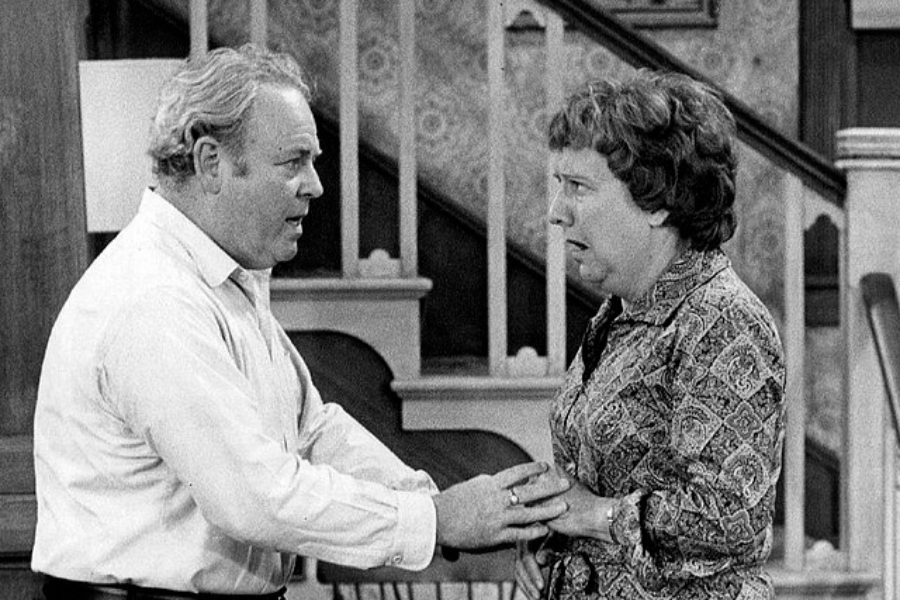The first time I watched a presidential debate as a young adult, I was surprised by what a far cry it was from my middle school debate class—and not in a good way. I saw almost nothing of what I’d learned about constructing a valid argument, forming a refutation, cross-examination or any other debate skill on the presidential debate stage, and I was confused. Why did I have to learn those rules and guidelines if the people competing for the highest office in the nation didn’t even use them in a nationally televised debate?
That was my impression during the “normal” era of politics. This week’s presidential debate dropped the bar so low we might as well call it six feet under. I’m not sure if we hit rock bottom, but it feels like we’re darn close.
My two teens watched the presidential debate with me. Normally, I would have grabbed this opportunity to discuss with them the issues presented to the candidates, point out the ways politicians use language to make their policies sound good, and how they frame things to make their opponents’ policies look bad. I would have walked them through an analysis of the debate, probably lamenting the lack of formal debate practices—that’s nothing new—but still discussing the nuances of what made each candidate’s performance weaker or stronger. I wouldn’t have tried to steer their opinions of the candidates one way or the other, but allowed them to evaluate on their own.
This debate offered no such opportunities. It was a train wreck, and there’s no getting around the fact that it was a train wreck because the President of the United States made it one.
And it saddens me as much as it enrages me. I want my children to be able to respect the president. Even if they disagree with his policies, even if they think he’s in the wrong on various issues, I want them to be able to respect the leader of our country as a leader.
But they can’t. I can’t. And that sucks.
To watch the President of the United States engage in behavior that I wouldn’t tolerate in a 5-year-old is humiliating and impossible to explain to my children. My husband and I have worked to instill into them the values of common courtesy and basic decency. We’ve taught them to carefully consider different opinions and viewpoints and to evaluate them fairly and honestly, and always treat others with respect and compassion.
They’re teens and they’re smart—they saw the aggression and rudeness and complete lack of decorum with their own eyes and formed their own appalled responses. But what about younger kids? The ones who are just forming their ideas about leadership and true strength and acceptable behavior—the ones for whom this man is the only presidential example they’ve known?
Parents have shared how some of their children reacted to the debate, and it’s heartbreaking. How can we be proud of our country when the president makes children cry because he’s a big ol’ bully?
Those reactions are totally understandable. I’m 45 years old, and I flipped back and forth between wanting to cry and wanting to throw my TV set out the window. We are going through a huge ordeal as a nation, with a global pandemic and economic struggles and social upheaval creating a great deal of uncertainty. The last thing we need is a leader that makes our children feel unsafe simply by opening his mouth.
I know there are people who think that basic decency and reasonably good character are not necessary qualities in a president, and that nothing matters but certain issues or certain policies, but I 100% disagree. The president is the leader of our nation. The president is the individual face representing our nation among all the world’s leaders. Are we really going to make the argument that literal leaders shouldn’t be expected to behave with dignity—especially when the whole world is watching? Are we really going to say it’s not a huge problem for the president to embarrass our nation with behavior we’d never tolerate in our own children? Really?
“This isn’t normal,” I had to keep telling my kids. “There’s usually some interrupting and some contention in a presidential debate, but not like this. This is awful and unacceptable.” I had nothing else. I’ve never been so embarrassed to be an American.
I guess the one silver lining is that the debate did give us the opportunity to talk about how to handle a bully, what abusive manipulation looks like, and the difficult position Chris Wallace found himself in. But the fact that a presidential debate became a discussion on bullying and abuse is the entire problem in and of itself. This is not the America I want for my children. No policy or issue is worth this humiliation.




























